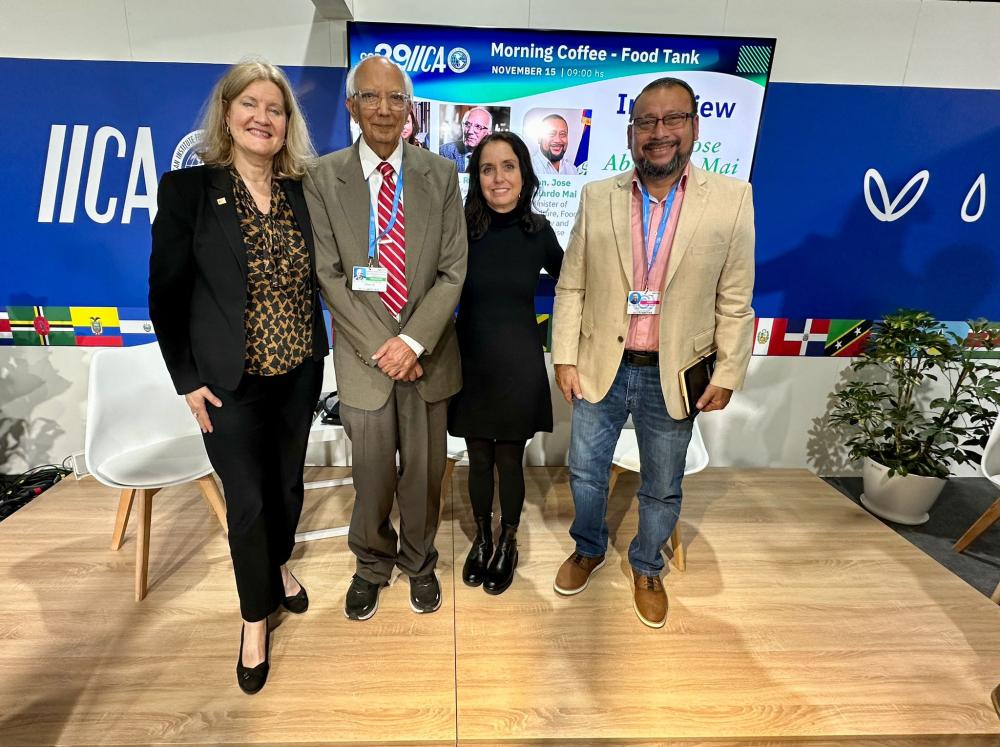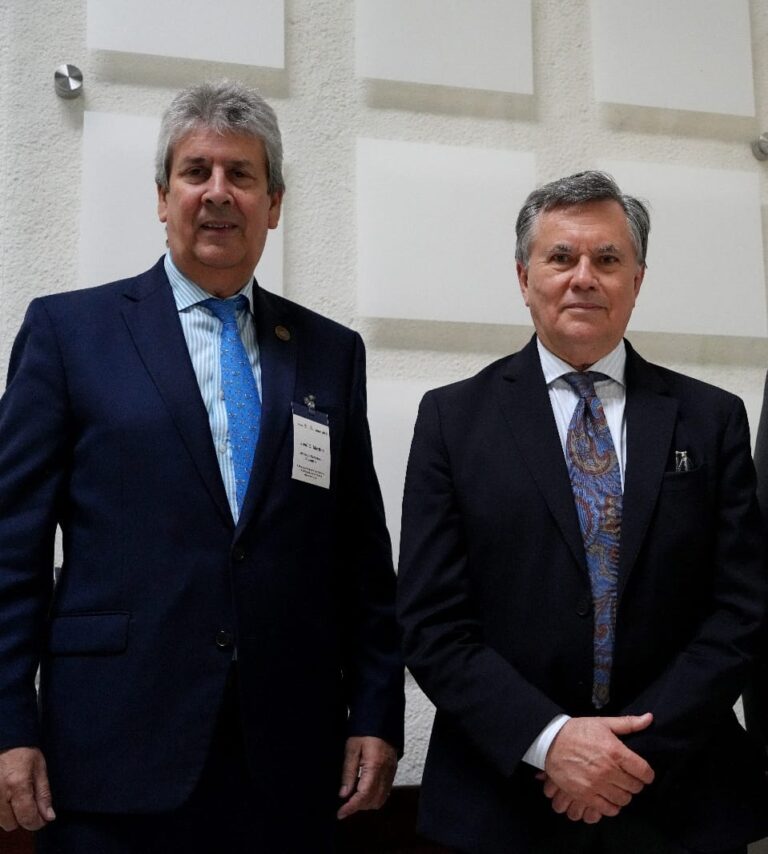The conversation conveyed an optimistic outlook on the future of agriculture, an activity that is already contributing adaptation and mitigation solutions.

Baku, Azerbaijan, 20 November 2024 (IICA) – The future of agriculture as the mainstay of global food security and a key tool for environmental sustainability will depend on supporting farmers, the true protagonists of agriculture.
This was one of the conclusions of a lively conversation that attracted the attention of participants at COP29. Taking part in the dialogue, which was moderated by Danielle Nierenberg, President of the Food Tank organization, were scientist Rattan Lal, a global authority on soil health; José Abelardo Mai, Minister of Agriculture and Food Security of Belize; and Lloyd Day, Deputy Director General of the Inter-American Institute for Cooperation on Agriculture (IICA).
The dialogue was held at the pavilion that IICA and its partners installed at the United Nations Climate Change Conference, which is being held in Azerbaijan this year. The conversation conveyed an optimistic outlook on the future of agriculture, an activity that is already contributing adaptation and mitigation solutions.
For the third consecutive year, the Home of Sustainable Agriculture of the Americas pavilion Is amplifying the voices of farmers at the world’s leading discussion forum on ways to address climate change. Now a benchmark pavilion at the event, which is currently taking place in the city of Baku, with 65,000 attendees, the pavilion was also present in the COPs held in Sharm-El-Sheikh in 2022 and in Dubai in 2023.
Food Tank is a non-profit organization working towards positive transformation in how we produce and consume food. As one of the agriculture movement’s most dynamic organizations, its work generates a strong impact in the field.
Nieremberg highlighted the high number of young people from all over the world who have come to Azerbaijan to participate in COP29, demonstrating the younger generation’s interest in protecting the planet’s future.
The President of Food Tank underscored the importance of the organization’s relationship with IICA. She considered it very valuable that, at COP29, IICA was showcasing the success stories of agriculture in the Americas and the transformations that are underway in the sector.
Affected farmers
Minister Mai emphasized the challenges that farmers face every day, especially in Central America and the Caribbean, which are regions that are highly vulnerable to climate change. “I am 10,000 miles from home; it took me three days to get here. Heat waves or floods are affecting farmers as we speak. There is an urgent need to do something about the environment. What brought me here is the hope of bringing something back to farmers. We must accelerate sustainability”, he explained.
Mai underscored the need to involve children and youth in agriculture and to assure them that, if the sector continues driving its transformation, there is hope. “We can no longer take food for granted and we cannot degrade soils or fertilize indiscriminately, because that generates pollution. On the other hand, it is also crucial for food prices to be reasonable. In order for this to happen, costs must be reasonable for farmers, because any excessive cost is passed on to consumers. There will be no food security if food is not accessible”, he remarked.
Rattan Lal, in turn, considered it extremely valuable that IICA was once again working to ensure that the voice of agriculture was heard at COP 29, given its importance in the global discussions on future modes of production and consumption.
“Soil is the foundation of life. There is no life without soil. All the ecosystems that people need come from the soil. It is also key for spirituality”, said Lal, the 2020 World Food Prize winner and an IICA Goodwill Ambassador.
The renowned scientist noted that producing more with less is key: “Less water, less soil, less fertilizer. This can be achieved by improving soil health and increasing organic matter. Tillage is now obsolete; residues must remain in the soil”, explained Lal.
In that regard, he described farmers as the true protagonists of food security and environmental sustainability. However, he considered that public policy makers are key to ensuring that farmers can improve their practices and put science into practice. “There will be no tomorrow if we don’t take action now”, he concluded.
More information:
Institutional Communication Division.
comunicacion.institucional@iica.int











